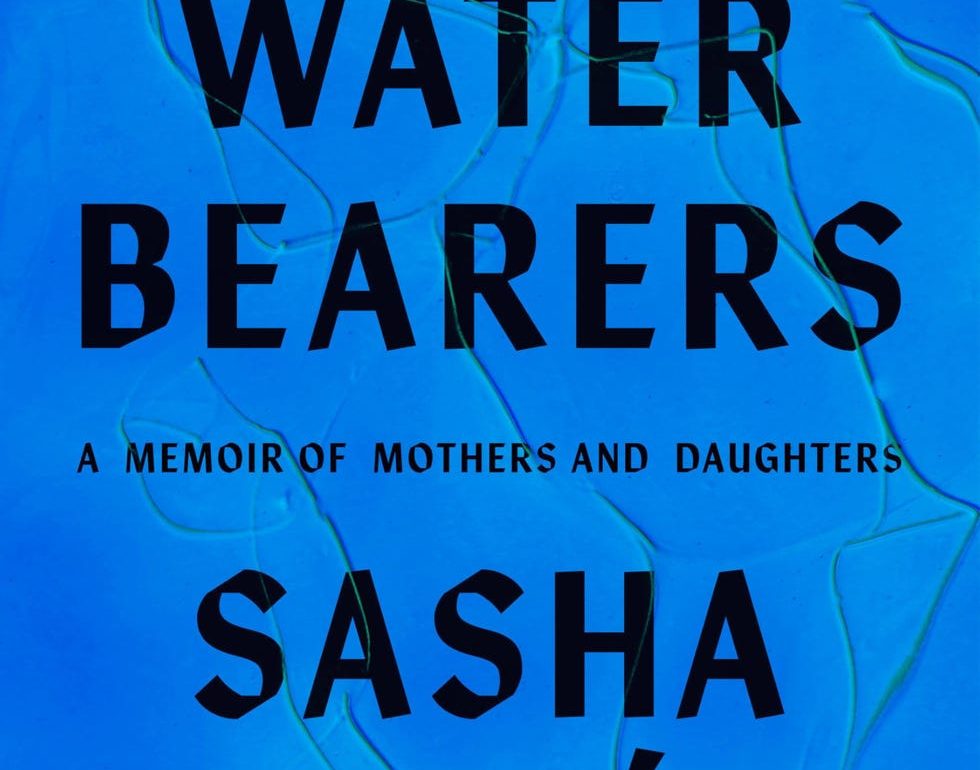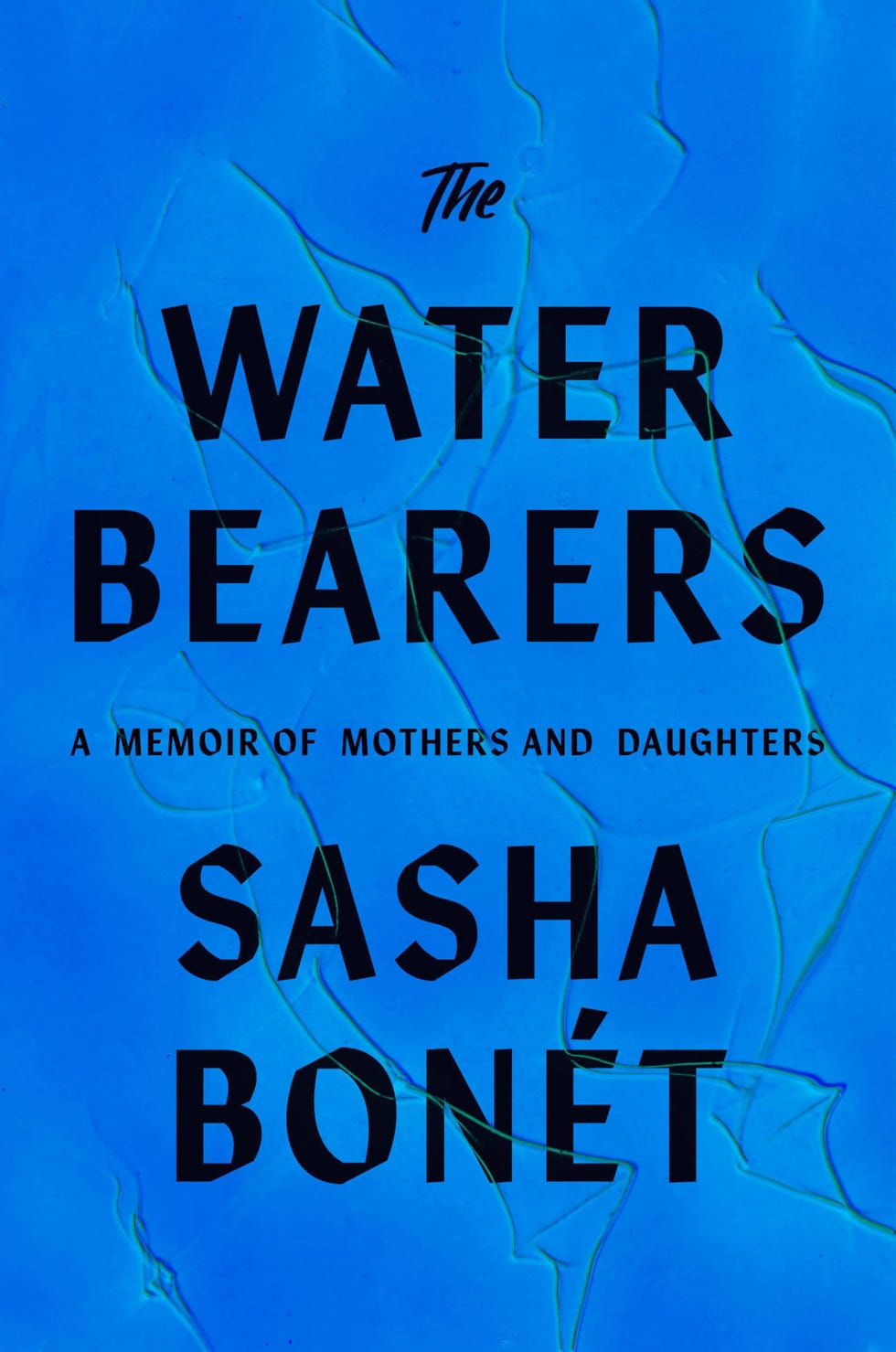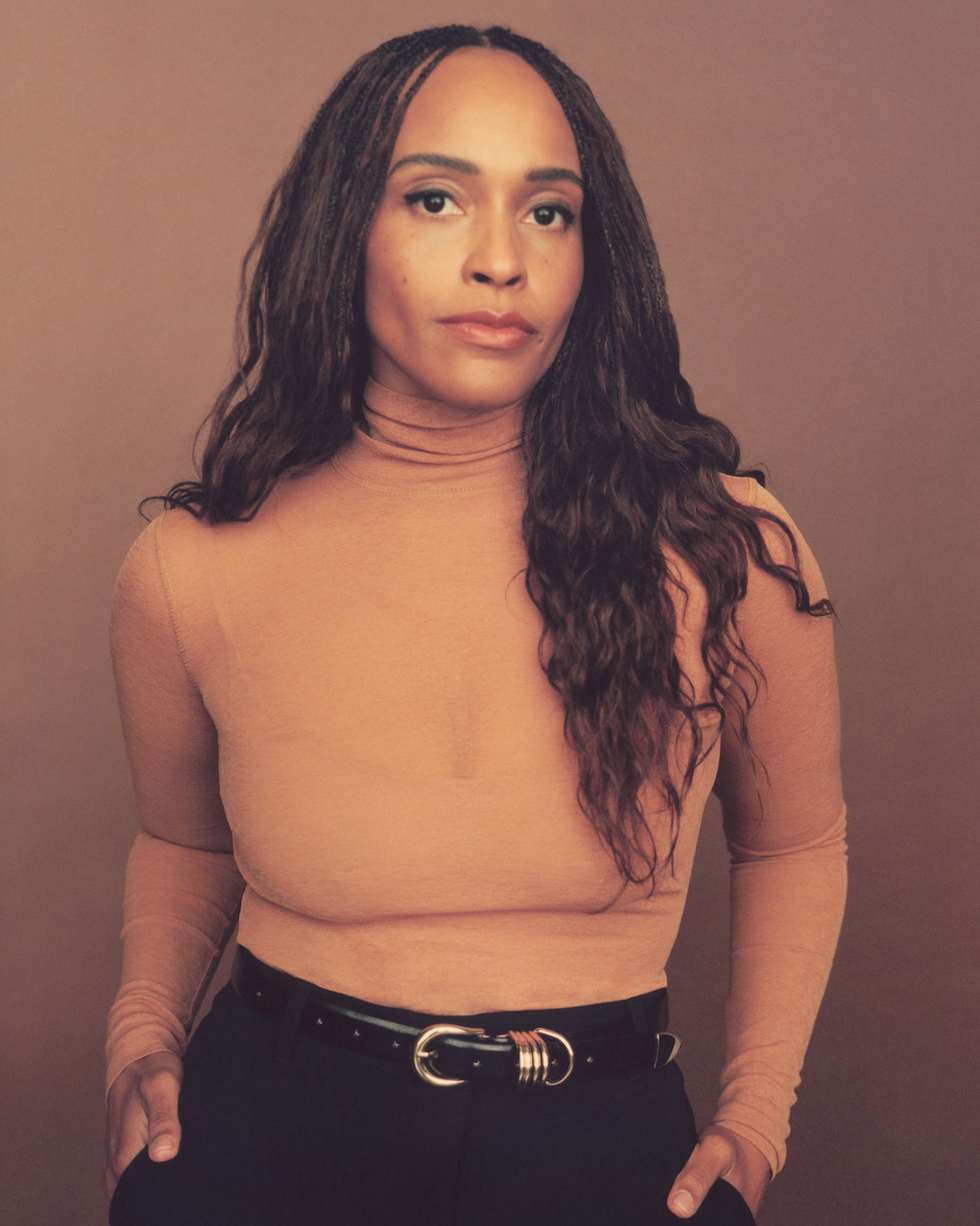In writing The Waterbearers: A Memoir of Mothers and Daughters, author and cultural critic Sasha Bonét sought to better understand the relationship between Black motherhood, Black womanhood, and history itself. In a modified excerpt from The Waterbearers below, Bonét recalls growing up as a Black girl in 1990s Texas—and resolves to provide her daughter with a different experience.
I was never a girl. Or, at least, I never felt like one. I never felt protected or childlike. I was never called “sweet.” I was called “thick,” I was called “redbone,” I was called “big-boned,” I was called “stallion.” I was called to fix plates, I was called to raise boys, I was called into the kitchen. I was a woman among women even when I was a child. And like any fruit that ripens too soon, I hardened before I could arrive at my robust optimality.
This was not a choice. It was an expectation. It was a forced quickening. At 10, my body betrayed me. At 10, my body shifted terrains without my consent—from flat plains to rounded peaks and deep valleys. I remember the world around me adjusting to this shift as well. My thighs and ass emerged, in the same way a peony opens: a swift rupture with no possibility of returning to its previous form. Away went my aspiration for innocence. I developed a deep fear of being seen while also being titillated by the newly found attention.
Even my father, whom I treasured most in this world, insisted that I hide. I was no longer allowed to wear my favorite denim shorts that I suddenly had to wiggle into, or play outside alone, or ride my bike beyond the railroad tracks. My new body felt like a punishment that I had to live within for eternity. I dreamed of transcending my fleshly form. My parents intended to shield me from predators, but this only introduced me to the many restrictions my body would eventually yield to. Besides, it had already begun in our own home. And would carry on for years.
I began being abused so young that I can’t even remember the first time it happened. My earliest memories of sexual abuse are in preschool, when I was 3 or 4 years old. Abuse is insidious; difficult to detect or trace or contain. It moves through families undetected, people reenacting their hurt on those closest to them, those they love and trust will keep their secrets.
Some days I cannot trust my memory. Some days I feel as if it was my fault. Maybe I asked for it. I can’t recall ever being treated like I wasn’t guilty of something, despite never knowing entirely what I was guilty of. It’s such a strange feeling as a child to always have the impulse to beg forgiveness for existing. I carried my body like an apology. As if I needed to hide so that others were not suspicious of me. The abuse left me repulsed with myself, especially when my parents preached “your body is a temple” or “your body is your virtue.” They didn’t know that all of that had already been taken away from me, leaving me worthless while also understanding that my body was my only access to value. Without it, I felt there was nothing left of me to hold as precious.
When you are a girl, and you recognize that your only value is associated with physical elements of your being, you internalize this as your potency. Skewed formations of self-worth begin to rise on the soft spots that have yet to determine a final shape—like the supple crown of a newborn’s head that everyone avoids, in fear of irreversible damage. Ego is molded from the remnants of racialized fragmenting of the Black girl’s existence. You begin to subjugate this as your power, because above all else, you must survive by playing the hand you were dealt. And so the hardening begins.
This new body produced suspicion from my mother and aunties. When they called me “fast,” they didn’t mean the urgency in which my body developed. How could flesh alone suggest deviance? They had internalized what Black women had been told about themselves since slavery and passed from one generation to the next. It is here, in the home, that racism begins to infect the most intimate corners of the Black human experience. At 10 years old, I was 5’8” with fully formed breasts. While my friends still wore children’s clothing, I came to obtain an authority that I did not earn nor desire: granter of masculinity. Allowing grown men to fondle me, I fumbled my way through adolescence, making no attempts to reclaim control over my body, but rather using my body to bend others to my will. This is far too much power for a girl.
When I began writing [The Waterbearers], I knew I wanted to write about Black womanhood, but I kept being pulled back to motherhood, and I couldn’t understand why. The same way I couldn’t write about Black motherhood without writing about America. I wanted to disconnect from that part of the story of Black women, but that was the story. That is the main artery, the main body from which the rivers and tributaries are formed. They all somehow connect to motherhood.
I also had to question why I wanted to avoid motherhood: because I assumed there was no power in that identity. But there is only power there. I began to understand the ways that my body was hypersexualized when I was young, and men, almost compulsively, told me what they would do to my body. One consistency across racial lines were comments about childbearing. It didn’t matter that I was still a child. My body excited and provoked the idea of reproduction. If the men say it enough, and society tells you this enough, you begin to see it as your value. And then you begin to exploit it and embrace the degradation. This way you can get ahead of the pain, disarm it. Desensitize yourself. Claim it as a type of power. Or you could dismiss this and reject the concept of motherhood altogether. But even those who don’t have babies can embody motherhood and be treated as such. The hypersexualization and the identity of motherhood are in tandem.
Shortly after the emergence of my hips, my father disappeared. I began to disassociate from my body. As I reflect on what that little girl needed, I am reminded that I learned, so young, how to hate myself.
It wasn’t until I was a mother that the unlearning began. Because I saw this beautiful human and thought, If she’s beautiful, what does that make me? I saw her as precious and in need of protection from all the pains the world is sure to bring to the mouth of a young Black girl and force her to swallow. I struggle to ever think of myself as a girl in need of protection. But in raising my daughter, I can see that it’s what I needed most. In my daughter, I can see that she feels safe, allowing space for her young mind to process and imagine otherworldly things, not just fear and recoiling in anticipation of agony.
I remember constantly trying to work out ways to shield myself. Perhaps this was misinterpreted by adults as arrogance. I suspect that there was a power or presence that I possessed that the adults around me experienced as a confrontation. Beauty is often experienced as a confrontation. Without saying a word, a symmetrical face that aligns with the standards of beauty can induce surrender and subsequently shame and uncertainty in the viewer. As a girl, I was unaware of these responses, but as a Black girl, everyone seemed to think I understood them and was playing a game of ignorance. Trying to get over in some way. That I walked and carried my body in a particular way to invite these feelings. That my ass and hips moved not from joy or function but for the deliberate consumption of others. I shrank further into the depths of myself.
So, to that little girl, I don’t quite know what to say. It feels strange to unearth her, but I wish I could hug her and protect her and listen to her and believe her. And when I struggle to access that part of myself, I practice all the care that I needed as a girl on my daughter.
Copyright © 2025 by Bleu Bayou, LLC. From the book THE WATERBEARERS by Sasha Bonét. Published by arrangement with Alfred A Knopf, an imprint of The Knopf Doubleday Group, a division of Penguin Random House LLC.








